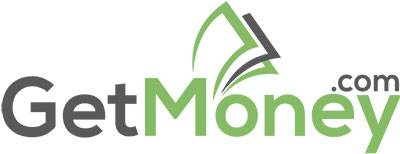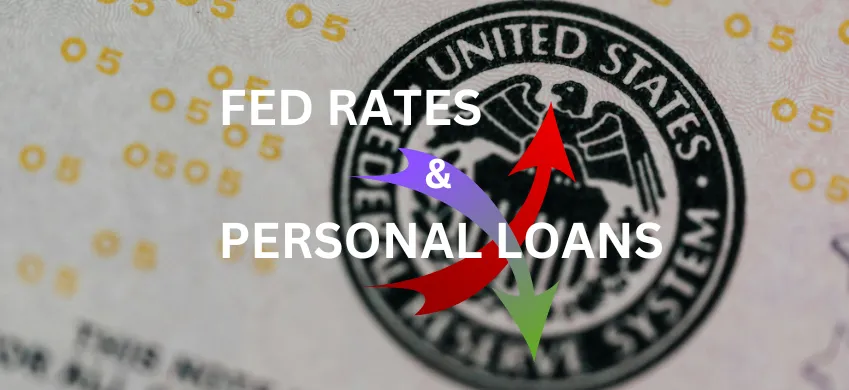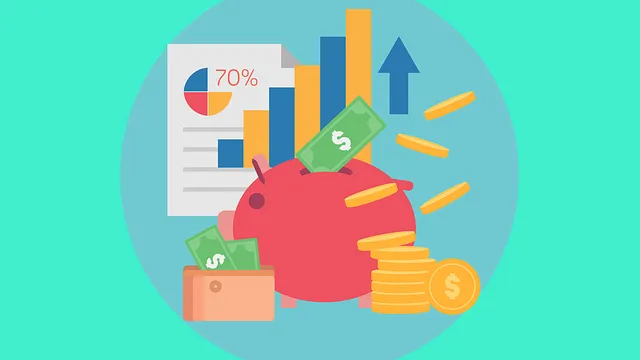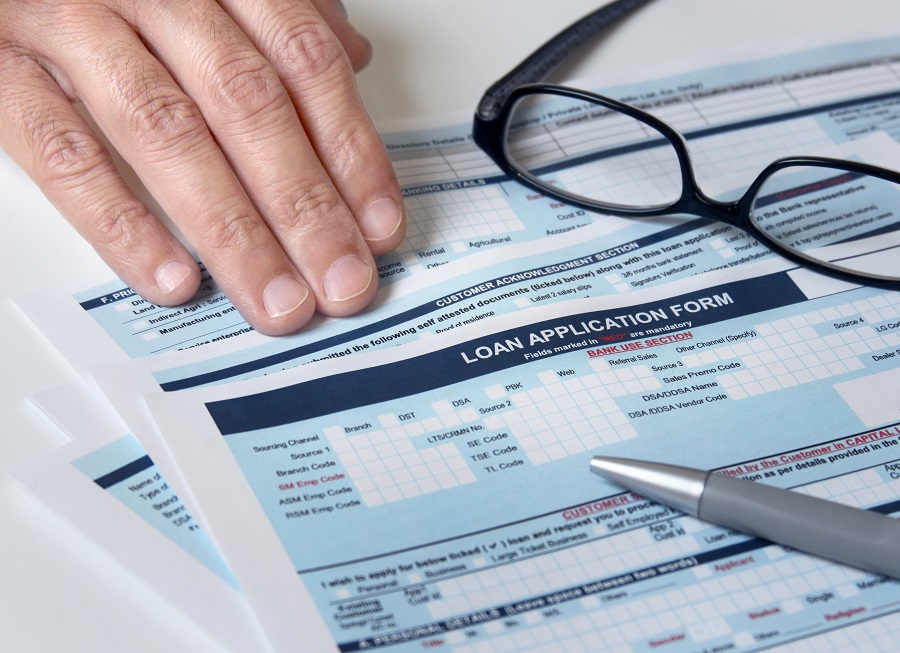Federal Reserve Interest Rates and Personal Loans: How Fed Decisions Affect Your Borrowing Costs
The Federal Reserve, commonly known as “the Fed,” plays a central role in the U.S. economy. Its decisions directly influence interest rates, which in turn affect how much consumers pay to borrow money, especially for personal loans. In this article, we’ll explore how the Fed’s actions impact personal loans and other forms of borrowing. By understanding these dynamics, you can make smarter financial decisions, especially in times of economic uncertainty.
What Does the Federal Reserve Do?
The Federal Reserve is the central bank of the United States, responsible for managing the nation’s monetary policy. It does so through several key functions:
- Setting interest rates to encourage or discourage borrowing and spending
- Regulating banks to ensure financial stability
- Controlling the money supply to prevent inflation or deflation
- Acting as a lender of last resort in times of financial crises
- Conducting economic research and providing insights into the financial outlook
By adjusting interest rates, the Fed either stimulates economic growth or slows down inflation. These changes ripple through the economy, affecting everything from mortgages and auto loans to personal loans.
How Fed Actions Have Shaped Interest Rates Over the Past 20 Years
Over the last two decades, the Fed has made significant interest rate adjustments, especially during key economic events like the 2008 financial crisis and the COVID-19 pandemic. These shifts have had a direct impact on the cost of personal loans.
Here’s a snapshot of how the Fed’s actions have unfolded:
| Year | Fed Interest Rate Decision | Reason |
|---|---|---|
| 2008 | Slashed rates to near 0% | 2008 financial crisis |
| 2015–2018 | Gradual rate increases | Strengthening economy |
| 2020 | Cut rates to near 0% again | COVID-19 pandemic |
| 2022–2023 | Rapid rate hikes | Fight against inflation |
| 2024 | Held rates steady at 23-year high | Continued inflation control |
How Fed Rate Decisions Affect Personal Loans
1. Personal Loan Interest Rates
Personal loans are typically unsecured, meaning they don’t require collateral. This makes them riskier for lenders, which is why personal loan interest rates tend to be higher than those for secured loans like mortgages or car loans. The interest rates you’re offered are influenced by:
- The Fed’s benchmark interest rate
- Your credit score
- Your income and employment history
For example, in 2020, when the Fed dropped rates to nearly zero during the pandemic, personal loan rates also decreased. This made borrowing more affordable, prompting many people to consolidate debt, make large purchases, or cover emergency expenses. However, when the Fed began aggressively raising rates in 2022 to combat inflation, personal loan rates surged, making borrowing more expensive.
2. Refinancing Personal Loans
Refinancing involves taking out a new loan with a lower interest rate to pay off your existing loan. Here’s how the process works:
- Review your current loan: Look at the terms, rate, and any prepayment penalties.
- Compare new loan options: Shop around for lenders offering better rates.
- Apply for the new loan: If approved, use the new loan to pay off the old one.
Example: Refinancing a Personal Loan
Suppose you have a $20,000 personal loan with a 12% interest rate and three years left to repay. Your monthly payment is $665. If you can refinance to a 9% interest rate, your new payment would drop to $635, saving you $30 per month, or over $1,000 over the life of the loan.
Tip: Refinancing is especially advantageous when Fed rates are decreasing, as lenders often offer more competitive rates.
| Year | Fed Funds Rate (%) | Average Personal Loan Rate (%) |
|---|---|---|
| 2008 | 0–0.25% | 10.0% |
| 2015 | 0.25–0.50% | 9.3% |
| 2020 | 0–0.25% | 10.28% |
| 2024 | 5.25–5.50% | 12.35% |
3. Impact on Other Consumer Loans
The Fed’s decisions don’t just affect personal loans—they also influence mortgages, auto loans, and credit card rates. For example, when the Fed lowered rates to nearly zero in 2020, mortgage rates dropped significantly, sparking a boom in home purchases and refinancing. But by 2024, with rates climbing to a 23-year high, borrowing costs for mortgages have surged, discouraging home buying and refinancing.
4. Business Loans and Fed Rate Changes
Small businesses also feel the impact of Fed rate changes. Lower rates encourage borrowing for expansion and equipment purchases, while higher rates make borrowing more expensive, slowing growth. Real-life examples demonstrate this:
- Restaurant Expansion: In 2020, a family-owned restaurant took advantage of low rates to secure a $150,000 loan at 4%, enabling them to expand.
- Tech Startup: A small tech firm in 2022 was able to lock in a 5.5% interest rate on a $200,000 loan for new servers. A year later, with rates rising, the same loan would have cost them 8.5%, adding significant costs.
Key Factors That Influence Personal Loan Interest Rates
When considering a personal loan, keep in mind that several factors impact the rate you’ll be offered:
- Federal Funds Rate: The Fed’s rate decisions directly impact the interest rates banks and lenders charge for personal loans.
- Economic Conditions: In times of economic distress, the Fed may lower rates to encourage borrowing. Conversely, they raise rates when inflation becomes a concern.
- Lender Competition: During periods of low interest rates, competition between lenders may drive personal loan rates down.
How Fed Rate Changes Impact Personal Loan Costs: Real-Life Example
Let’s take a look at how Fed rate hikes can influence personal loan costs. In early 2022, Sarah, with a credit score of 700, took out a $10,000 personal loan at 10.28%. Her monthly payment was around $214. By 2024, with Fed rates much higher, the same loan would cost her 12.35%, raising her monthly payment to $224. Over five years, that $10 difference adds up to $600 more in interest.
Personal Loan Landscape (As of October 2024)
Here’s a snapshot of the current personal loan market:
- Average Personal Loan Debt: $10,749 per borrower
- Delinquency Rates: Up 54% compared to the previous year
- Federal Reserve Policy: Rates remain at a 23-year high after several consecutive meetings
- Future Outlook: Personal loan rates are expected to stay high but could drop in the future as inflation eases.
Tips for Borrowers in a High-Rate Environment
When the Fed raises rates, it’s important to be proactive with your borrowing strategy. Here are a few tips:
- Shop Around: Lenders respond differently to Fed rate hikes, so it’s worth comparing multiple offers.
- Consider Fixed-Rate Loans: Fixed-rate personal loans lock in your interest rate, protecting you from future increases.
- Refinance: If rates drop after you take out a loan, consider refinancing to save money.
- Boost Your Credit Score: A higher credit score can help you secure better rates, even in a rising rate environment.
- Understand Loan Types: Fixed-rate loans offer predictability, while variable-rate loans may adjust with Fed rate changes.
The Fed Influences Every Loan
The Federal Reserve’s actions have a significant impact on personal loan interest rates and business loans. This makes it essential for borrowers to stay informed and plan based on the what they think the fed will do. By understanding the relationship between Fed decisions and borrowing costs, you can make smarter financial choices. Whether it’s choosing the right time to refinance or get new loan, it is important to follow the trends before locking in a interest rate on your new loan.
A few articles to consider reading to better understand personal loans:
Always consult with a qualified financial advisor before making any major loan decisions.
The authors, publishers, and distributors of this article do not assume any responsibility for actions taken based on the information provided herein.
This article is for informational purposes only and should not be considered financial advice or the sole basis for making financial decisions. The data, examples, and information presented in this article may not be fully up-to-date or 100% accurate.







